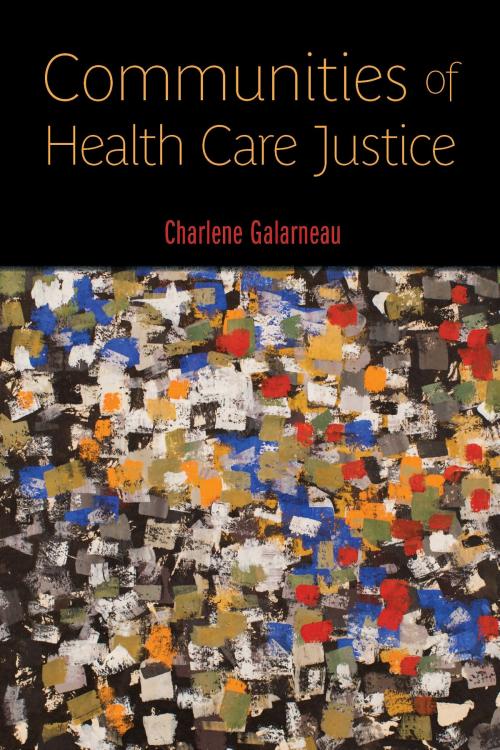Communities of Health Care Justice
Nonfiction, Health & Well Being, Medical, Reference, Ethics, Religion & Spirituality, Philosophy, Ethics & Moral Philosophy, Social & Cultural Studies, Social Science| Author: | Charlene Galarneau | ISBN: | 9780813577685 |
| Publisher: | Rutgers University Press | Publication: | November 3, 2016 |
| Imprint: | Rutgers University Press | Language: | English |
| Author: | Charlene Galarneau |
| ISBN: | 9780813577685 |
| Publisher: | Rutgers University Press |
| Publication: | November 3, 2016 |
| Imprint: | Rutgers University Press |
| Language: | English |
The factions debating health care reform in the United States have gravitated toward one of two positions: that just health care is an individual responsibility or that it must be regarded as a national concern. Both arguments overlook a third possibility: that justice in health care is multilayered and requires the participation of multiple and diverse communities.
Communities of Health Care Justice makes a powerful ethical argument for treating communities as critical moral actors that play key roles in defining and upholding just health policy. Drawing together the key community dimensions of health care, and demonstrating their neglect in most prominent theories of health care justice, Charlene Galarneau postulates the ethical norms of community justice. In the process, she proposes that while the subnational communities of health care justice are defined by shared place, including those bound by culture, religion, gender, and race that together they define justice.
As she constructs her innovative theorization of health care justice, Galarneau also reveals its firm grounding in the work of real-world health policy and community advocates. Communities of Health Care Justice not only strives to imagine a new framework of just health care, but also to show how elements of this framework exist in current health policy, and to outline the systemic, conceptual, and structural changes required to put these justice norms into fuller practice.
The factions debating health care reform in the United States have gravitated toward one of two positions: that just health care is an individual responsibility or that it must be regarded as a national concern. Both arguments overlook a third possibility: that justice in health care is multilayered and requires the participation of multiple and diverse communities.
Communities of Health Care Justice makes a powerful ethical argument for treating communities as critical moral actors that play key roles in defining and upholding just health policy. Drawing together the key community dimensions of health care, and demonstrating their neglect in most prominent theories of health care justice, Charlene Galarneau postulates the ethical norms of community justice. In the process, she proposes that while the subnational communities of health care justice are defined by shared place, including those bound by culture, religion, gender, and race that together they define justice.
As she constructs her innovative theorization of health care justice, Galarneau also reveals its firm grounding in the work of real-world health policy and community advocates. Communities of Health Care Justice not only strives to imagine a new framework of just health care, but also to show how elements of this framework exist in current health policy, and to outline the systemic, conceptual, and structural changes required to put these justice norms into fuller practice.















